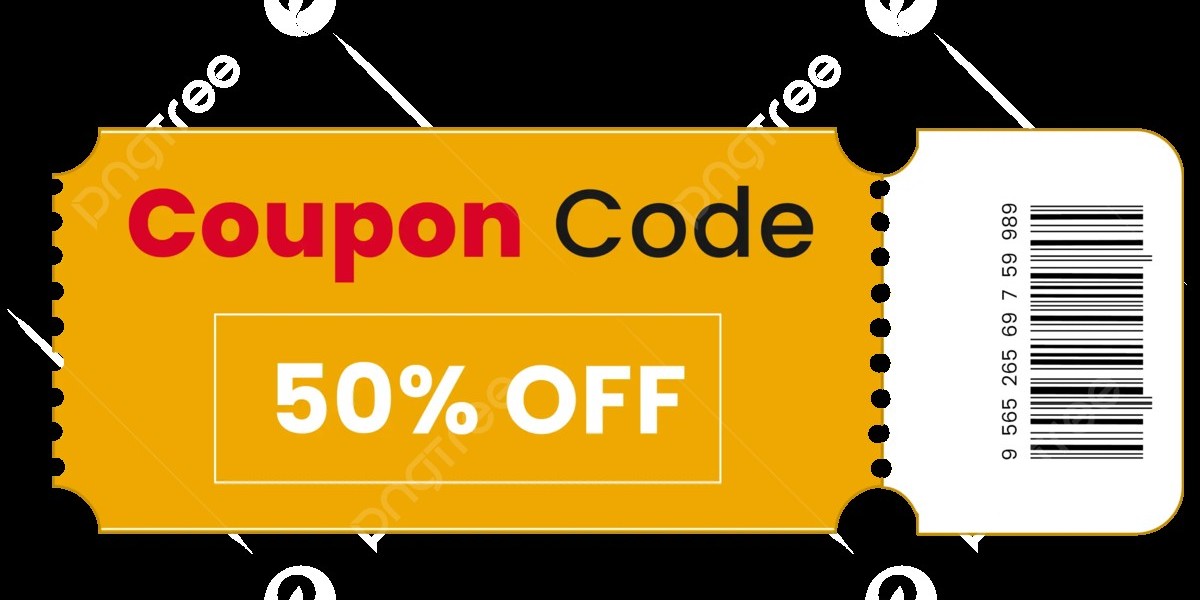In today's digital marketplace, savvy shoppers are always on the lookout for ways to stretch their dollars further. One of the most popular and effective methods for saving money online is through the use of coupon codes. These digital discounts have revolutionized the way we shop, offering instant savings at the click of a button. In this comprehensive guide, we'll explore everything you need to know about coupon codes, from their history and how they work to strategies for finding the best deals and avoiding common pitfalls.
What Are Coupon Codes?
Coupon codes, also known as promo codes, discount codes, or voucher codes, are alphanumeric strings that online shoppers can enter during the checkout process to receive a discount on their purchase. These codes typically offer a percentage off the total price, a fixed dollar amount discount, or other perks such as free shipping or a free gift with purchase.
Unlike traditional paper coupons, digital coupon codes are incredibly convenient. There's no need to clip, organize, or remember to bring them to the store. Instead, they're easily accessible online and can be applied with just a few keystrokes. This convenience has made coupon codes an integral part of the online shopping experience for millions of consumers worldwide.
The History and Evolution of Coupon Codes
The concept of coupons dates back to the late 19th century when Coca-Cola offered paper tickets for free glasses of their new soft drink. However, the digital revolution of the late 20th and early 21st centuries transformed coupons into the electronic format we know today.
The first online coupon is credited to Pizza Hut, which offered pizza ordering on its website in 1994. As e-commerce grew in popularity throughout the late 1990s and early 2000s, more retailers began offering digital discounts to incentivize online shopping.
The advent of coupon code aggregator websites in the mid-2000s further popularized the use of these digital discounts. These sites collect and curate coupon codes from across the internet, making it easier for consumers to find savings for their favorite retailers.
Today, coupon codes have become so ubiquitous that many shoppers won't complete a purchase without first searching for a potential discount. This shift in consumer behavior has led to the development of browser extensions and mobile apps dedicated to automatically finding and applying coupon codes at checkout.
How Coupon Codes Work
Coupon codes function as a form of promotional marketing for retailers. When a customer enters a valid coupon code during the checkout process, the e-commerce platform's software recognizes the code and applies the corresponding discount to the order.
Here's a step-by-step breakdown of how coupon codes typically work:
- The retailer creates a unique coupon code and sets parameters for its use (e.g., discount amount, expiration date, minimum purchase requirement).
- The code is distributed to customers through various channels, such as email newsletters, social media, or coupon websites.
- A customer adds items to their cart on the retailer's website and proceeds to checkout.
- During the checkout process, the customer enters the coupon code in the designated field.
- The e-commerce platform verifies the code's validity and checks if all conditions are met.
- If valid, the discount is applied to the order, and the customer sees the reduced total before completing the purchase.
It's important to note that coupon codes can have various restrictions, such as being limited to certain products, having a minimum purchase amount, or being valid only for a specific time period. Always read the terms and conditions associated with a coupon code to ensure it applies to your purchase.
Types of Coupon Codes
Coupon codes come in various forms, each offering different types of savings. Understanding these different types can help you maximize your discounts:
- Percentage Off: These codes offer a percentage discount on the purchase total or specific items. For example, "SAVE20" might offer 20% off your entire order.
- Fixed Amount Off: These codes provide a set dollar amount discount. For instance, "50OFF" could give you $50 off your purchase.
- Free Shipping: These codes eliminate or reduce shipping costs, which can be significant for some orders.
- Buy One Get One (BOGO): These promotions offer a free or discounted item when you purchase a specific product.
- Free Gift: Some codes add a complimentary item to your order when you meet certain conditions, such as a minimum purchase amount.
- New Customer Discounts: Many retailers offer special coupon codes for first-time buyers to encourage new business.
- Loyalty Rewards: Repeat customers may receive exclusive coupon codes as a thank you for their continued patronage.
- Seasonal or Holiday Discounts: Retailers often offer special codes during major shopping seasons like Black Friday or Christmas.
Understanding these different types of coupon codes can help you choose the best one for your specific purchase and potentially stack multiple discounts for maximum savings.
Strategies for Finding the Best Coupon Codes
With the proliferation of coupon codes, finding the best deals can sometimes feel like searching for a needle in a haystack. However, with the right strategies, you can significantly increase your chances of scoring substantial savings. Here are some effective methods for finding the best coupon codes:
- Sign Up for Retailer Newsletters: Many companies offer exclusive coupon codes to their email subscribers. By signing up for newsletters from your favorite retailers, you'll often be the first to know about sales and receive special subscriber-only discounts.
- Follow Brands on Social Media: Retailers frequently share limited-time coupon codes on their social media platforms. Following your favorite brands on Facebook, Instagram, Twitter, and other social networks can give you access to these exclusive offers.
- Use Coupon Code Aggregator Websites: Sites like RetailMeNot, Coupon.com, and Groupon collect coupon codes from across the internet. These platforms can save you time by compiling codes from multiple retailers in one place.
- Install Browser Extensions: Tools like Honey, Capital One Shopping, and Rakuten automatically search for and apply the best available coupon codes when you're shopping online. These extensions can save you both time and money.
- Check Deal Forums: Online communities like Slickdeals and Reddit's r/deals subreddit are great places to find user-submitted coupon codes and deals.
- Abandon Your Cart: Some retailers use cart abandonment as a trigger to send targeted emails with special coupon codes. Try adding items to your cart and leaving the site without completing the purchase. You may receive a follow-up email with a discount offer.
- Look for Welcome Offers: When shopping on a new site, look for pop-ups or banners offering a discount for new customers. These often appear when you first visit a site or move your cursor towards the exit button.
- Use Live Chat: If you can't find a working coupon code, try reaching out to the retailer's customer service via live chat. They may be able to provide you with a valid code or offer.
- Check Manufacturer Websites: If you're shopping for a specific brand, check the manufacturer's website for coupon codes before purchasing from a third-party retailer.
- Timing is Key: Many retailers offer their best coupon codes during major shopping events like Black Friday, Cyber Monday, and end-of-season sales. Planning your purchases around these events can lead to significant savings.
By employing a combination of these strategies, you can dramatically increase your chances of finding valuable coupon codes for your online purchases.
The Pros and Cons of Using Coupon Codes
While coupon codes can offer significant benefits, it's important to consider both the advantages and potential drawbacks of relying on them for your online shopping.
Pros:
- Immediate Savings: Coupon codes provide instant discounts, reducing your out-of-pocket expenses.
- Convenience: Digital coupons are easy to find, store, and use compared to traditional paper coupons.
- Encourages Trying New Products or Retailers: Attractive coupon codes can motivate you to explore new brands or items you might not have considered otherwise.
- Potential for Significant Discounts: Some coupon codes, especially during major sales events, can offer substantial savings.
- Combines with Other Savings: Coupon codes can often be used in conjunction with sales prices and cash-back offers for maximum savings.
Cons:
- Impulse Purchases: The allure of a good deal can lead to buying items you don't really need.
- Time-Consuming: Searching for the best coupon codes can be time-intensive, especially if you're checking multiple sources.
- Expired or Invalid Codes: Not all coupon codes you find online will work, leading to potential frustration during checkout.
- Minimum Purchase Requirements: Some codes only work if you spend a certain amount, which might encourage overspending.
- Privacy Concerns: Signing up for newsletters or using certain coupon apps may require sharing personal information.
- Can Lead to Overspending: The psychology of "saving money" with a coupon can sometimes lead to spending more overall.
By being aware of these pros and cons, you can make informed decisions about when and how to use coupon codes effectively.
Best Practices for Using Coupon Codes
To make the most of coupon codes while avoiding potential pitfalls, consider the following best practices:
- Always Read the Fine Print: Pay attention to expiration dates, exclusions, and any minimum purchase requirements associated with the coupon code.
- Compare Prices Across Retailers: A coupon code at one store doesn't always mean it's the best deal. Compare the final price (after applying the code) with other retailers.
- Stack Coupons When Possible: Some retailers allow you to use multiple coupon codes on a single purchase. Check if you can combine codes for even greater savings.
- Don't Let Coupons Drive Your Purchases: Only buy what you need or have planned to purchase. A great coupon for an unnecessary item isn't saving you money.
- Create a Separate Email for Deals: To avoid cluttering your primary inbox, consider creating a separate email address for retailer newsletters and deal alerts.
- Check for Coupon Codes Right Before Purchasing: Coupon codes can change frequently. Always do a quick search right before you complete your purchase to ensure you have the best available code.
- Be Wary of Too-Good-To-Be-True Offers: If a coupon code seems unrealistic, it probably is. Be cautious of phishing scams or fake coupon code websites.
- Use Coupon Codes on Already Discounted Items: Applying a coupon code to a sale item can lead to significant savings.
- Consider Price Matching: Some retailers will match competitors' prices and allow you to use their coupon codes, potentially leading to better deals.
- Don't Spend Just to Use a Coupon: If you're adding items to your cart solely to meet a minimum spend requirement for a coupon, reconsider whether you're actually saving money.
By following these best practices, you can maximize your savings while minimizing the risks associated with coupon code usage.
In conclusion, coupon codes have become an integral part of the online shopping experience, offering savvy consumers the opportunity to save money on their purchases. By understanding how coupon codes work, where to find them, and how to use them effectively, you can significantly reduce your online shopping expenses. Remember to approach coupon codes strategically, always considering whether the discount truly aligns with your needs and budget. With the right approach, coupon codes can be a powerful tool in your money-saving arsenal, helping you stretch your dollars further in the digital marketplace.










